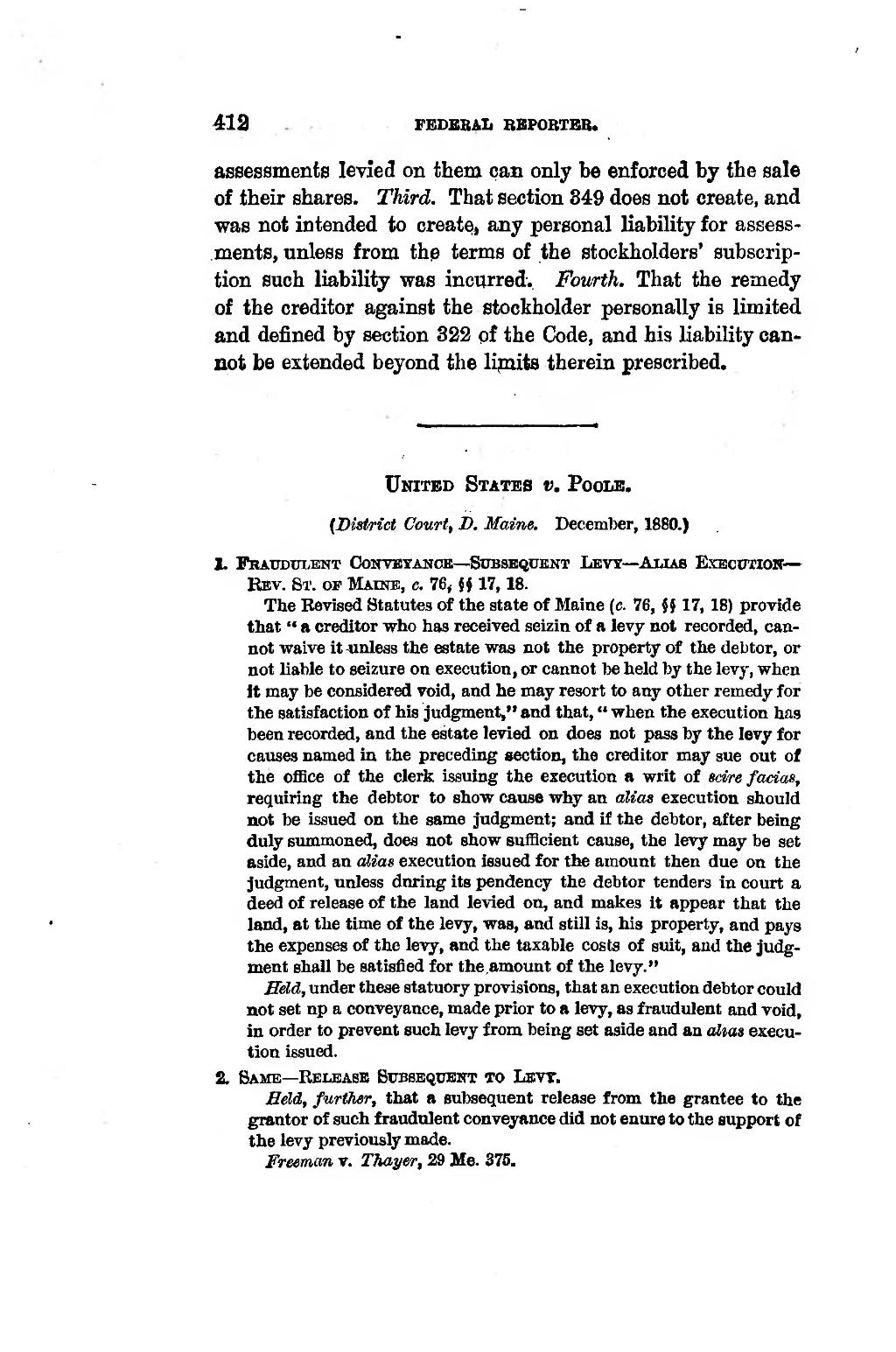412 FEDBBAL BEPOBTBR. �assessments levied on them çan only be enforced by the sale of their shares. Third. That section 349 does not create, and was not intended to create, any personal liability for assess- ments, unless from th^ terms of the stockholders' subscrip- tion such liability was incnrred. Fourth. That the remedy of the creditor against the stockholder personally is limited and defined by section 322 pf the Code, and his liability can- not be extended beyond the lijnits therein prescribed. ���United States v. Poolb. {District Court, D. Maine. December, 1880.) �FRAlTDTrLBNT COTSTVS'iiSCB — SUBSEQUENT IiEVr— ALIAS ExBCUTIOIf — �Rbv. St. of Maine, c. 76, §J 17, 18. �The Revised Statutes of the state of Maine {c. 76, U 17, 18) provide that " a creditor who has received seizin of a levy not recorded, can- not waive it-unleas the estate was not the property of the debtor, or not liable to seizure on execution, or cannot be held by the levy, when it may be considered void, and he may resort to any other remedy for the satisfaction of his judgment," and that, " when the execution has been recorded, and the estate levied on does not pass by the levy for causes named in the preceding section, the creditor may sue out of the office of the clerk issuing the execution a writ of sdre fada», requiring the debtor to show cause why an alias execution should not be issued on the same judgment; and if the debtor, after being duly summoned, does not show sufflcient cause, the levy may be set aside, and an alias execution issued for the amount then due on the judgment, unless during its pendency the debtor tenders in court a deed of release of the land levied on, and makes it appear that the land, at the time of the levy, was, and still is, his property, and pays the expenses of the levy, and the taxable costg of suit, and the judg- ment shall be satisfled for the amount of the levy." �Held, under these statuory provisions, that an execution debtor could not set up a conveyance, made prier to a levy, as fraudulent and void, in order to prevent such levy from being set aaide and an alias execu- tion issued. Bamb— Rblbabb Subsequent to Lkvt, �Held, furfher, that a subsequent release from the grantee to the grantor of such fraudulent conveyance did not enure to the support of the levy previously made. �Freeman v. Thayer, 29 Me. 375, ����
Page:Federal Reporter, 1st Series, Volume 5.djvu/424
This page needs to be proofread.
